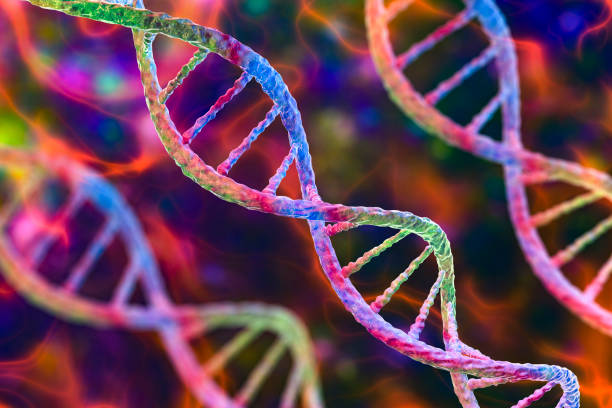Have you ever wondered why some people have sensitive skin and others have skin that can handle anything?
The answer lies in genetics. Genetics plays a major role in the development and severity of sensitive skin.
Understanding how genetic factors affect their skin can help people with sensitive skin find the right products and treatments (See Amazon) to have the best outcomes.

What is Sensitive Skin?

Sensitive skin is a term that is often used to describe a group of skin conditions or conditions that make the skin more responsive to certain triggers.
These triggers can be anything from temperature changes and pollution, to certain chemicals and ingredients found in skincare products.
Sensitive skin is characterized by redness, itchy patches, hives, and rashes.(See Amazon) In some cases, the skin can become swollen, blistered, and even break out in a rash. (See Amazon)
Sensitive skin can affect any part of the body, but it is most commonly found on the face, neck, and other exposed areas.
The Role of Genetics in Sensitive Skin

Genetic factors play a significant role in determining how a person’s skin will respond to certain triggers.
Studies have shown that people who have relatives with a history of allergic conditions, such as eczema, hay fever, and asthma, (See Amazon) are more likely to develop sensitive skin.
This is because these conditions are all linked to the same genetic defect, which affects the skin’s ability to form a protective barrier against environmental pollutants and allergens.
Researchers believe that a genetic mutation can be passed down from generation to generation, meaning that a person’s sensitivity to certain triggers can be an inherited trait.
Additionally, the severity of sensitive skin can also be affected by a person’s genetic makeup.
Some people with sensitive skin may only experience mild redness and itching, while others may be more prone to painful hives and blistering.
Treating and Preventing Sensitive Skin
While the genetic component of sensitive skin cannot be changed, there are steps that can be taken to prevent and treat it.
For starters, it is important for people with sensitive skin to avoid any triggers that they may recognize, such as hot weather or certain chemicals in skincare products.
Additionally, it is important to keep skin hydrated (See Amazon) and to use gentle and non-irritating skincare products.
For people who suffer from more severe forms of sensitive skin, such as eczema (See Amazon), it is important to visit a dermatologist to get a proper diagnosis and treatment.
There are a variety of prescription medications and over-the-counter products that can be used to help soothe and heal the skin.
Additionally, there are certain lifestyle changes, such as avoiding certain allergens and managing stress, which can also help to reduce symptoms.

Conclusion
Genetic factors play a major role in the development and severity of sensitive skin. People with a family history of allergic conditions are more likely to develop sensitive skin, and the severity of the condition can also be influenced by a person’s genetic makeup. (See Amazon)
Understanding the genetic component of sensitive skin can help people with the condition find the right products and treatments for the best outcomes.
It is important for people with sensitive skin to avoid any triggers that they may recognize, and to use gentle and non-irritating skincare products. Additionally, it is important to visit a dermatologist for a proper diagnosis and treatment, and to consider lifestyle changes, such as stress reduction and avoiding allergens.
With the right approach, it is possible to manage the symptoms of sensitive skin and enjoy clear and healthy skin.
